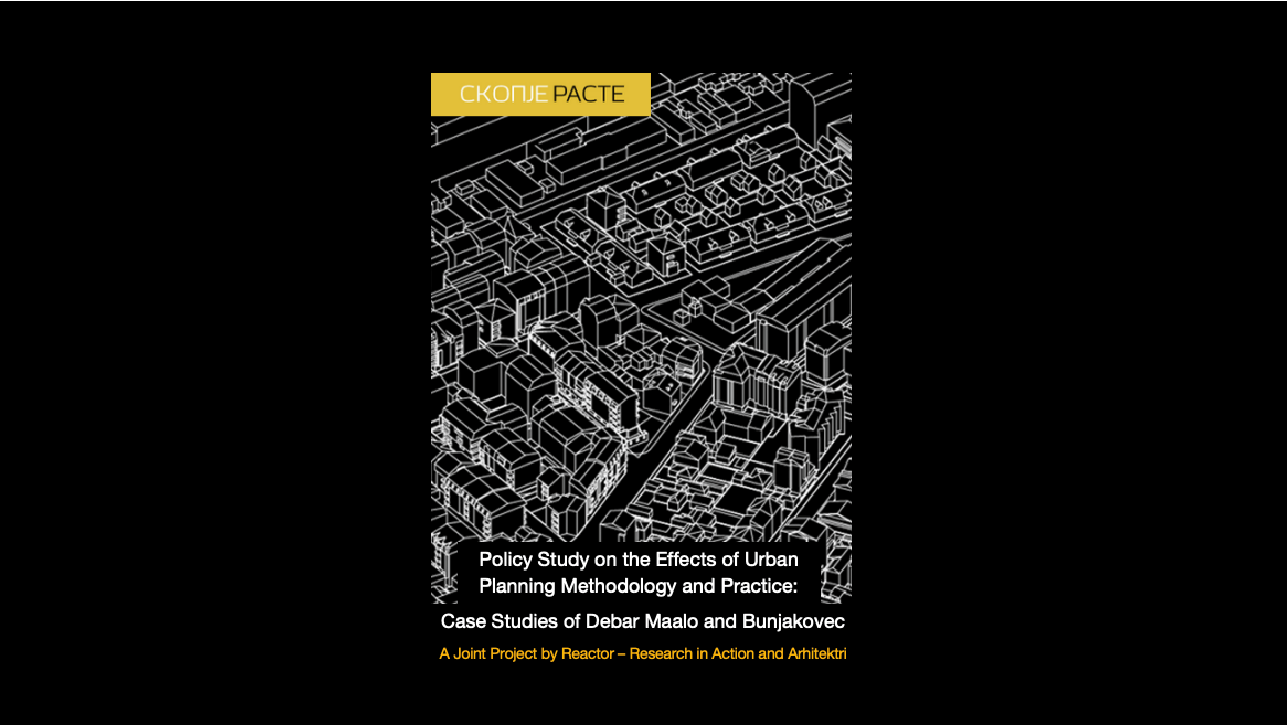
On December 21st, Reactor launched a new project under the Urban Development program called “Public spaces in Skopje: Transformation, Urbanization and Misuse.” The overall goal of the project is to engage the public in a wider debate on the urban planning processes in Skopje by providing a web platform containing searchable sets of relevant data
On December 21st, Reactor launched a new project under the Urban Development program called “Public spaces in Skopje: Transformation, Urbanization and Misuse.” The overall goal of the project is to engage the public in a wider debate on the urban planning processes in Skopje by providing a web platform containing searchable sets of relevant data that can be used by everyone from policy makers to experts to the wider public, with the intent of supporting civic oversight of local government in Skopje. The project is inspired by the concerning low demand among citizens for public accountability and transparency on the one hand, government unwillingness to allow or recognize the need for citizen input on the other, as well as the reluctance of CSOs to tackle difficult issues.
By aggregating official data, verifying it on the field and providing new, searchable and extractable data sets, the action will address:
– The illegal usurpation of public spaces that is tolerated by the authorities, the rate of illegal construction and its legalization at preferential taxes (approximately 200.000-300.000 buildings are illegal);
– Legislative loopholes that allow for drastic changes of entire neighborhoods (the manipulation of the height of the buildings);
– Discrepancies between approved blueprints and actual executions of objects (the lack or/and abuse of inspections);
– The rapid reduction of green areas in the city through constant changes of the Detailed Urban Plans and irresponsible and illegal building practices.
– The lack of infrastructure investments to accompany the massive increase in units and people (from streets and sewage to kindergartens and playgrounds);
– Building new while neglecting to renovate the old (for example, building of new theater while the existing three are in very bade shape);
The project is jointly supported by the OSF Think Tank Fund and Information Program and will be implemented over the next 12 months in partnership with studio Arhitektri.